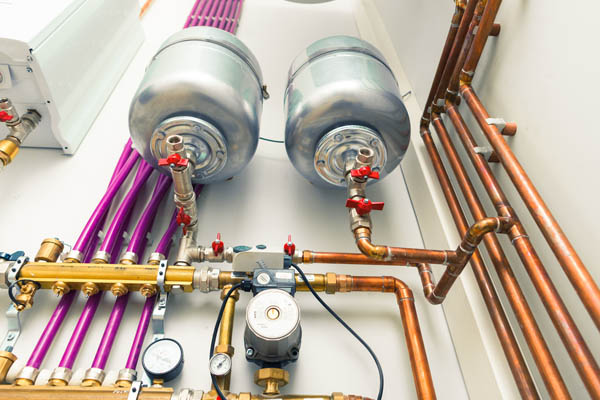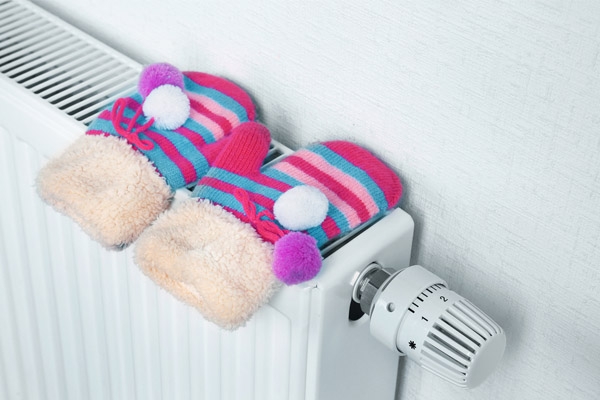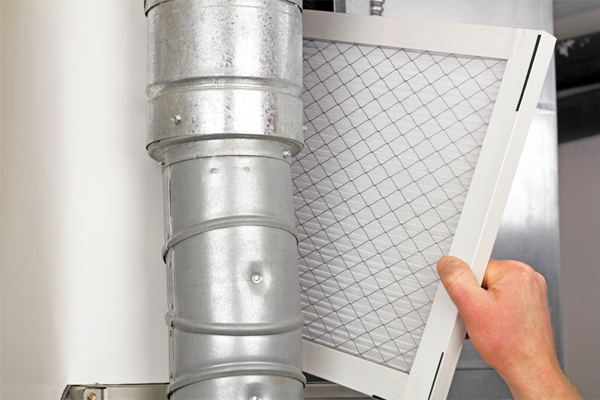Contents
- 1 How Forced-Air Furnaces And Boiler Heating Systems Are Different
- 1.1 What A Boiler Heating System Is
- 1.2 What Forced-Air Furnaces Are
- 1.3 How Are Furnaces And Boilers Different From One Another?
- 1.4 Which Is More Efficient?: Boiler Vs. Furnace
- 1.5 The Benefits And Drawbacks Of Boilers
- 1.6 The Benefits And Drawbacks Of Furnaces
- 1.7 Get Help With All Of Your Home Heating Needs By Calling Wilcox Energy Today

Homeowners frequently confuse boilers with furnaces. This isn’t a big surprise given that both of these units heat up homes and buildings. This, however, is where their similarities end. Even though heating is something that both of these systems supply, these two forms of equipment have significant differences. You have to decide which type you will install in your home, depending upon your current heating needs and the overall layout of your house. For this reason, you should be aware of a boiler vs. furnace. If you are installing a heating system in your home, it is crucial to research their differences and the different advantages that you can gain from each one.
How Forced-Air Furnaces And Boiler Heating Systems Are Different
This article will talk about several basic differences between these two heater types.
What A Boiler Heating System Is
Boilers are large containers that hold water or another liquid to produce steam or heat vapor. It is the main component of many heating systems. It is additionally a primary component in contributing to the emission and distribution of heat throughout the home.
Using liquid or water for heating purposes is known as hydronic heating or a radiator system. This type of system, apart from the actual boiler, is comprised of the radiators, baseboards, associated pipes, and included a circulator pump. Each of these are installed in various spaces and rooms to ensure proper heat distribution. Residential boiler systems can have a small number of parts or a very large number of parts, all depending upon how many rooms must be heated throughout the home.

What Forced-Air Furnaces Are
Furnaces are heaters that produce heat by using air. They distribute the heated air throughout the home. This kind of heater is sometimes referred to as a forced-air heater. This is because it forces room-temperature or cool air through a heat exchanger so that it can be heated. This heated air is then passed through the HVAC ductwork for distribution. Furnaces can be purchased for your home or small business in three basic types: upflow furnaces, downflow furnaces, and horizontal furnaces. These units can use induction, oil, gas, or electricity.
How Are Furnaces And Boilers Different From One Another?
The basic difference between boilers and furnaces is their manner of operations. Boilers produce warmth by heating up water or another liquid within a container. The system then moves hot water through a series of pipes that travel throughout the entire building or house. The pipes are warmed as the hot water or liquid passes through them, which in turn delivers heat to the respective rooms. Boilers are able to keep buildings sufficiently comfortable and warm as long as they have the ability to generate hot water or steam.
Conversely, furnaces use heat exchangers. With this manner of operation, air (as opposed to water or liquid) is heated up and circulated throughout the interior environment to warm it. This is accomplished via a blower motor, which moves the warm air through the ductwork and vents.

Which Is More Efficient?: Boiler Vs. Furnace
Warming up air requires more energy than what it takes to heat up a liquid like water. Due to this fact, furnaces tend to consume more fuel in a lesser period of time than boilers due. When it comes to cost, boilers usually have a higher purchasing price, but they can also be a bit more durable than furnaces. This, of course, also depends on the type of maintenance it receives.
The Benefits And Drawbacks Of Boilers
Following, we’ll talk about some of the benefits and drawbacks of having a boiler in your home.
Benefits
- Energy Efficiency: Generally, boilers require less fuel to create heat, and this means that you won’t have to deal with high energy costs.
- Quiet Operation: Boilers don’t generate hot air that has to be pushed through the HVAC system. As a result, they tend to operate with less noise than furnaces.
- Consistent Heat: Vapor or hot water is able to produce a more consistent level of heat than heated air.
- Better Air Quality: Unlike furnaces, boilers do not move air, and this means that they aren’t going to distribute pollen, dirt, dust, dander, or other allergens.
Disadvantages
- Boilers Only Produce Heat: Boilers are only capable of producing heat and cannot cool your home or small business down. Furnaces cannot cool indoor environments, but the same ductwork system can accommodate a cooling system as well.
- Difficult To Install: Comparatively, boilers require more effort and time for installation.
- Slow To Produce Changes In Indoor Temperatures: When there are changes at the thermostat, it can take a while for a boiler to adjust indoor temperatures effectively.
- Leak Hazards: Damaged or older boilers have a significant risk of developing water or liquid leaks, which can ultimately lead to water damage.
- Conversion Difficulties: Changing from a boiler to a furnace can be quite costly and difficult, especially if it involes ductwork installation.

The Benefits And Drawbacks Of Furnaces
Following, we’ll talk about some of the benefits and drawbacks of having a furnace in your home.
Benefits
- Furnaces Are Flexible: Furnaces use natural gas, propane, home heating oil, and electricity. There are even furnace models on the market that can use geothermal or solar energy, but these options tend to be less common.
- Furnaces Are Fast-Acting: Furnaces are capable of generating heat at a much more rapid rate than boilers. Thus, they can heat homes in a much shorter period.
- Costs: Furnaces are quite common. Thus, there tends to be more models and units available for purchase. The large number of furnace options for sale helps lower the price.
- Fewer Leaks: If a furnace leaks, it’s going to leak air rather than liquid. As such, there will be far less damage to your property, if any at all.
- There’s No Risk Of Freezing: In climates with exceedingly low winter temperatures, homes that have furnaces for heat are not at risk of developing frozen or burst pipes. Given that boilers use liquid for heating, freezing and bursting pipes are inherent risks of boiler heating systems.
Disadvantages
- Noisy: Furnace blowers create an audible sound when moving and distributing air. Each time furnaces turn on, they make noise.
- Issues With Heat Consistency: Heated air does not produce the same level of consistent heat that steam or hot water can. As a result, some rooms may feel cooler or hotter than others.
- Air Quality Concerns: If homeowners are not regularly changing out or cleaning air filters, the overall quality of the indoor air can decline.
Get Help With All Of Your Home Heating Needs By Calling Wilcox Energy Today

Choosing a boiler or a furnace for your home will depend on your home comfort needs and the layout of your property. If you want to replace an old and outdated heating system with a newer and more efficient one, you will be happy to learn that all new furnace and boiler models have high energy-efficiency ratings. This means greater savings going forward. If you’re unsure of which system type to install in your home, get the professional advice you need by calling a local HVAC contractor.
Wilcox Energy is an expert in quality home heating solutions in the area. Our NATE-certified and friendly technicians are able to resolve home comfort issues in a quick and professional manner. You can trust us to give you highly competitive prices. Moreover, your satisfaction is assured with our guarantee. Be sure to call Wilcox Energy to get your free in-home estimate.
For more information about our HVAC services, be sure to contact Wilcox Energy. You can click here to contact us, or you can call us at (860) 399-6218 to find out more. We offer a full line of heating and cooling repairs, maintenance services, and installations.
